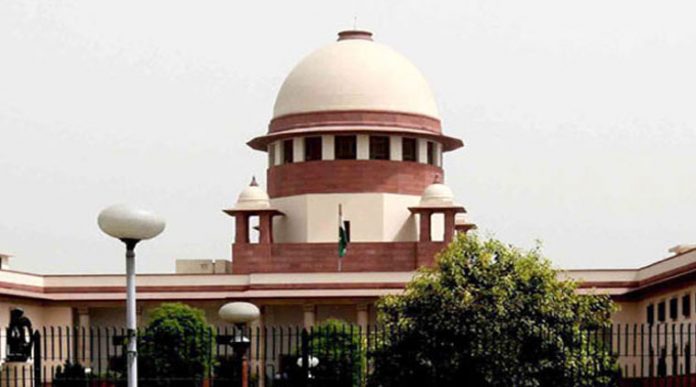This publication discusses the Supreme Court Judgment- Babasaheb Maruti Kamble v. State of Maharashtra Review Petition (Criminal)No 388 of 2015.
In the case of Bacchan Singh v. State of Punjab (1980) 2 SCC 684 the doctrine of rarest of the rare was propounded.
It was decided in that case that a death sentence can only be given in a case which shocks the public conscience and is totally against morality and humanity. It is of such a heinous nature that only the death penalty is the apt punishment for it.
It has also been laid down that when a death penalty is awarded the court is bound to record special reasons for awarding it.
The whole reasoning has to include the factors which are mitigating and also the factors which are aggravating in nature. Once this inquiry is done then the same needs to be looked and analyzed very objectively.
The point to be noted is that whenever the death sentence is to be given or an order of death sentence has to be upheld then reasons have to be recorded as to why the same is necessary.
The legislature has also placed a safeguard in place that where a sessions judge awards the death sentence then the same is to be affirmed by the high court in its wisdom.
Facts
The case involves, a Review Petition that was filed by the petitioner who was convicted for offenses under Sections 302, 376(2)(f) and 342 of the Indian Penal Code (hereinafter referred to as the Indian Penal Code).
He was awarded the death penalty for the offense punishable under Section 302 of the IPC by the trial court.
The imposition of a death penalty requires a confirmation from the High Court the sessions judge referred it to the High Court.
In the meanwhile, the petitioner also filed an appeal before the High Court and both the reference as well as the Appeal was heard together.
The High Court also returned the same findings and upheld the order of conviction and also the order of the death penalty.
As such a Special Leave Petition (Hereinafter referred to as SLP) was filed by the petitioner which was also rejected and the order of dismissal was a non-speaking order with only the terms ‘Dismissed’.
Issues
The main issue in this review petition was that whether the order of the Supreme Court was maintainable wherein the SLP was rejected with just a preliminary order in a case where the conviction of an accused was challenged which was supposed to be followed by a sentence of the death penalty.
The court was then required to analyze the facts of the case and see that whether there existed a case which fell in the category of the rarest of the rare and that whether there was a need for setting aside the death penalty that had been awarded.
Petitioner’s Arguments
It was argued that in a case where the conviction is followed by the death sentence, and an SLP has been filed against the same then the petition should not be dismissed in limine and if it is done then some reasons must be recorded by the Hon’ble Court.
It was further argued that the scope of review under Article 137 of the constitution of India is much broader and larger in criminal cases than in civil cases and unless some reasons are recorded while the dismissal of the SLP, the remedy of review would become elusive.
The case of Mohammed Ajmal Mohammad Amir Kasab v. the State of Maharashtra (2012) 9 SCC 1 was relied upon and also reliance was placed on Order XXII Rule 7 of the Supreme Court Rules which provides for the summoning of the trial court record for deciding appeals.
It was argued that normally such record is summoned only after the special leave petition was granted, but in cases where death sentence was imposed, the court should summon the record when it is making the final order even at the stage of SLP.
Respondent’s Arguments
The arguments of the petitioners were opposed by the respondent and it was contended that the SLP was rightly dismissed.
It was also argued that there was no reason for interfering in the order of the death penalty and the present case was a rarest of the rare case and it deserved to be given a death sentence.
Judgment-
After going through a plethora of cases and other records, it was held that SLP should not be dismissed without giving reasons in cases where a death sentence had been awarded by the courts below.
It was held that the practice of the court is such that the court provides an opportunity of hearing in the cases where the death penalty is challenged.
The court placed reliance on the case of Dayanidhi Bisoi v State of Orissa (2003) 9 SCC 310 and the case of Mohd. Arif Alias Ashfaq vs. Registrar, Supreme Court of India (2014) 9 SCC 737.
It was further held that there may be cases where at the stage of SLP the evidence could be of such a nature that there could be no scope for interference and even if the punishment of death penalty has to be assailed then the same shall be done by a reasoned order on the aspect of sentence even if the SLP is being dismissed in limine.
As such the Supreme Court allowed the review petition and recalled the order which dismissed the SLP. After allowing the review and restoring the same to its original number the court decided the SLP.
After going through the record and listening to the arguments it was held that the death penalty of the petitioner is set aside and it be converted into a sentence of life imprisonment.
A cap of 20 years was placed and it was directed that the petitioner shall not be entitled for remission.





